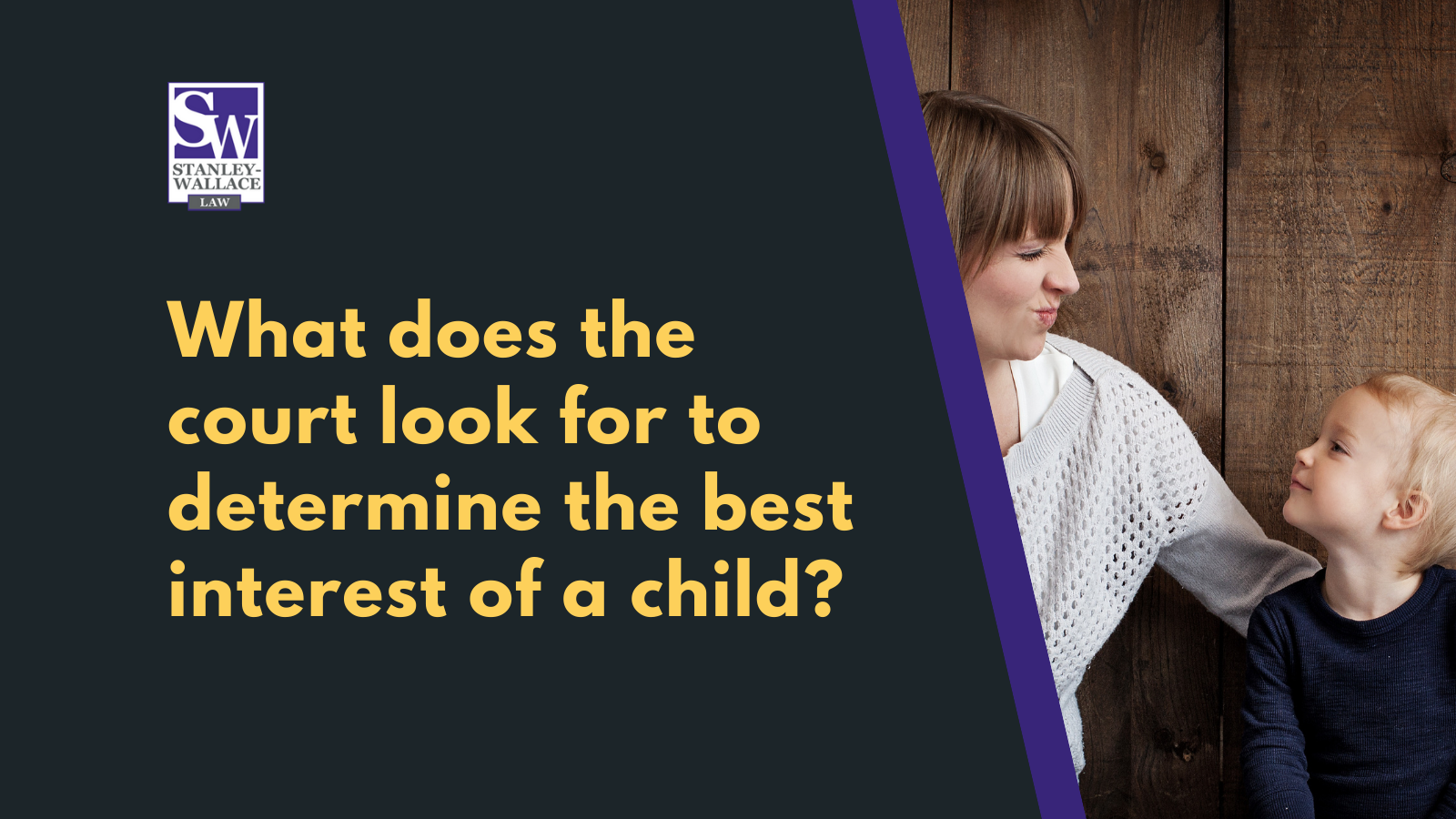Child custody cases are stressful, often because they can be very contentious. You may be going through a messy divorce, or you may be trying to secure visitation rights for you and your child.
Whatever the reason, it often becomes the case that you and the child’s other parent can’t come to an agreement without the intervention of the court. In Louisiana, the court holds a hearing for cases like these, and then decides on an arrangement that is in “the best interest of the child.”
At Stanley-Wallace Law, our Slidell office is dedicated to helping families through these difficult times. Sometimes, our clients feel overwhelmed and even confused by the terminology of the court — with good reason. So let’s take a look at what exactly the “best interest of the child” really means.
Louisiana Civil Code Article 134: Defining the best interest of the child
The Louisiana Civil Code lays out the powers and responsibilities that the court has in making decisions when the custody of a child is contested. Article 132 states that, if the parents agree on a custody arrangement, the court should go along with that. But if they disagree, then the court should default to a custody arrangement that allows both parents to hold joint custody.
However, there is one important condition in Article 132: all decisions should be made in the “best interest of the child.” So if joint custody isn’t in the child’s best interest, then the court should grant custody to just one of the parents.
Article 134 explains what exactly constitutes the best interest of the child. The Article lays out 14 points that the judge should take into consideration when making this important decision:
- The potential for the child to be abused.
- The love, affection, and other emotional ties between each parent and the child.
- The capacity and disposition of each parent to give the child love, affection, and spiritual guidance and to continue the education and rearing of the child.
- The capacity and disposition of each parent to provide the child with food, clothing, medical care, and other material needs.
- The length of time the child has lived in a stable, adequate environment, and the desirability of continuing to live in that environment.
- The permanence of the home or homes (existing or potential).
- The moral fitness of each parent.
- The history of substance abuse, violence, or criminal activity of any parent.
- The mental and physical health of each parent.
- The home, school, and community history of the child.
- The reasonable preference of the child (if the court deems the child to be of sufficient age to express a preference).
- The willingness and ability of each party to facilitate and encourage a close and continuing relationship between the child and the other parent.
- The distance between the parents’ homes.
- The responsibility for the care and rearing of the child by each parent in the past.
What does all this mean?
Some of these points can be a bit confusing. The best thing you can do to help you sift through all this legal-ese is to secure the services of an experienced family law attorney. At Stanley-Wallace, our attorneys have years of experience helping the judge to determine what is in the best interest of the child based on these 14 considerations.
The important thing to know is that the court will not make its decision based on just one of these factors. Judges take all of these factors into consideration, granting weight to each one on a case-by-case basis.
However, the potential for child abuse can often be the determining factor. Article 134 goes on to state that if there is a history of either parent committing family violence, the court must come to a decision based on RS 9:341 and RS 9:364.
Those two statutes essentially mean that the court must restrict visitation and custody rights if a parent is proven to be abusive. So, while the court is usually able to decide the best interest of the child on a subjective, case-by-case basis, if there is a history of abuse or violence, the visitation and custody rights of that parent must be restricted.
Hire a Louisiana family law attorney today
We know how stressful it is to go through a custody battle in court — especially because all you want is what’s best for your child. At Stanley-Wallace Law, we can walk you through all of the complicated legal jargon to help you make sure that your rights as a parent or guardian are respected, and that your child gets the family life that they need. Contact us today to schedule a consultation.


